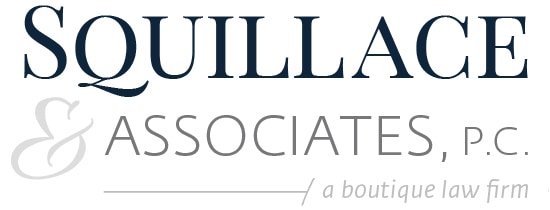
Following our recent correspondence regarding Federal Deposit Insurance Corporation (“FDIC”) coverage limits in light of the collapse of Silicon Valley Bank and Signature Bank, we received a number of questions from clients. Now, considering the ongoing issues faced by First Republic Bank, we would like to provide further clarity, specifically with respect to coverage limits for revocable trust accounts.
The following is intended to provide a general overview of the FDIC deposit insurance coverage limits for revocable trust accounts for informational purposes only; it does not constitute legal, business or financial advice. You should contact your lawyer, financial adviser or other professional advisers to advise you on your specific situation before you take any action, rather than relying on this alert.
FDIC deposit insurance for revocable trust accounts covers remainder beneficiaries and life estate beneficiaries, up to $250,000 per eligible beneficiary, but does not cover contingent beneficiaries. An eligible beneficiary must be a natural person or charitable organization. Moreover, even though the grantor of a revocable trust is generally a lifetime beneficiary of the trust, the grantor does not count toward the FDIC coverage limit for a revocable trust account. The FDIC coverage limit is based only on the non-contingent beneficial interests that arise after the grantor’s death.
Example A. A revocable trust grants: (i) the grantor and grantor’s spouse with life estate beneficial interests; (ii) the grantor’s two children with remainder beneficial interests; and (iii) a charity with a remote contingent interest. A revocable trust account at an FDIC-insured institution for this revocable trust would be eligible for maximum coverage of $750,000 (up to $250,000 for each of the spouse’s life estate and the two children’s remainder interests, but not for the grantor’s life estate or the charity’s remote contingent interest).
Example B. A revocable trust grants: (i) the grantor with a life estate beneficial interest; (ii) five of the grantor’s nieces and nephews with remainder beneficial interests; and (iv) four charities with remote contingent interests. A revocable trust account at an FDIC-insured institution for this revocable trust would be eligible for maximum coverage of $1,250,000 (up to $250,000 for each of the five nieces and nephews’ remainder interests, but not for the grantor’s life estate or the charities’ remote contingent interests).
Example C. A revocable trust grants: (i) the grantor and grantor’s spouse with life estate beneficial interests; (ii) four named charities with remainder beneficial interests; and (iii) the grantor’s heirs at law with remote contingent interests. A revocable trust account at an FDIC-insured institution for this revocable trust would be eligible for maximum coverage of $1,250,000 (up to $250,000 for each of the spouse’s life estate and the four charities’ remainder interests, but not for the grantor’s life estate or the heirs’ remote contingent interests).
The calculation of coverage for revocable trust accounts with six or more beneficiaries is more complex if the beneficiaries have unequal beneficial interests, but currently, the maximum coverage for revocable and irrevocable trust accounts is uncapped. However, effective as of April 2, 2024, the coverage rules for revocable and irrevocable trust accounts will be streamlined and the maximum deposit insurance coverage amount for all trust accounts will be capped at $1,250,000.
For joint revocable trust accounts with more than one grantor, the eligible beneficiaries are counted once per grantor. Each grantor of a joint revocable trust account receives coverage individually based on the number of non-contingent beneficiaries (excluding grantor-beneficiaries) of the joint revocable trust. In other words, if there are two grantors of a joint revocable trust account, each eligible beneficial interest is counted twice toward the maximum FDIC coverage available for the joint revocable trust account.
Deposits held across multiple accounts within a single FDIC-insured institution which are maintained in the same right and capacity (by or for the benefit of a particular depositor or depositors) are aggregated together for FDIC-insurance coverage purposes. On the other hand, deposits maintained in different rights and capacities are insured separately from each other. For example, if a grantor has multiple revocable trust accounts for a trust at a single FDIC-insured institution, those accounts would not be separately insured. On the other hand, if the same grantor has an individual account at the same institution, the individual account would be insured separately from the revocable trust accounts.
We are here to help.
If you have questions or need any advice regarding uninsured deposits, please contact our office at (617) 716-0300 or by sending us a message to schedule a consult.
DISCLAIMER: The information provided herein is made available for general informational purposes only and is not intended to constitute specific legal, financial or business advice, or to be a substitute for advice from qualified counsel or other advisers. Without limiting the foregoing, this information may not reflect recent developments in the law, may not be complete, and may not be accurate in or applicable to your jurisdiction or banking relationship. Because this information is general in nature and may not pertain to your specific circumstances, you should not act or refrain from acting based on any information without first obtaining advice from professional counsel or other advisers qualified in the applicable subject matter and jurisdictions. Squillace & Associates, P.C. has a policy of entering into attorney-client relationships with its clients only in accordance with certain procedures, which include executing an engagement letter and addressing conflicts of interest. You agree that your receipt of this information does not create an attorney-client or other fiduciary relationship between you and Squillace & Associates, P.C.
